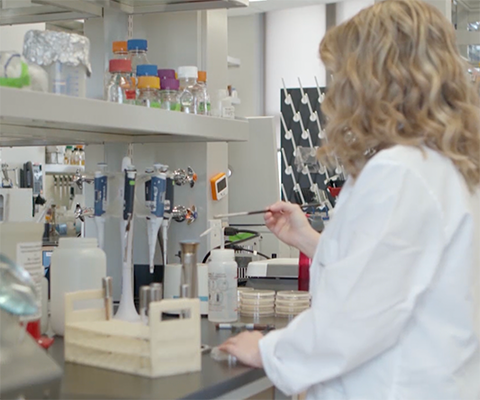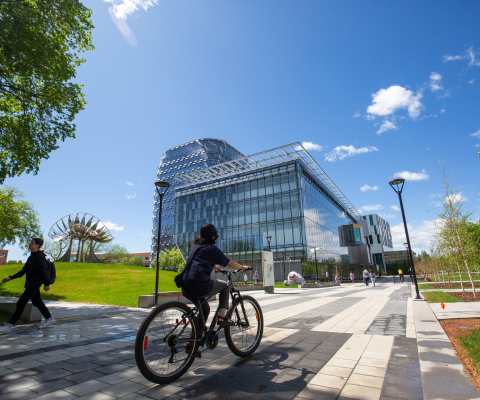Battle against bacteria leads to national award

Dr. Marie-Laurence Lemay was honoured with the L’Oréal-UNESCO For Women in Science Award for her work on virulent phages.
During her thesis at Université Laval, Dr. Lemay studied (bacterio)phages, viruses that specifically infect bacteria. Amongst others, she developed a CRISPR-Cas9-based genetic tool to modify phage genomes and developed a robust pipeline to study phage-bacteria interactions at the proteome level.
“In the past few years antibiotic resistant bacteria have actually brought back the interest in using phages as an alternative to antibiotics,” said Dr. Lemay. “I am studying phages to better understand how they target, how they infect and how they destroy bacteria to assess and maximize their potential for human health.”
Dr. Lemay is currently a postdoctoral researcher in the group of Dr Yves Brun, Canada 150 Research Chair in Bacterial Cell Biology. Her work is supported by the Natural Sciences and Engineering Research Council (NSERC) of Canada and the Fonds de Recherche du Québec – Nature et Technologies (FRQNT). Her research focuses on phages of Caulobacter crescentus, a bacterium with a complex life cycle.
Dr. Lemay admits she’s eager to have her own research lab in Canada and continue her research on phage biology with the long-term goal of finding an adjuvant for the health crisis that is caused by antimicrobial resistance.
A passionate teacher and science advocate Dr. Lemay is involved with a number of organizations. She is currently organizing the 2022 BiSP conference, a French-language conference for Microbiologists across Canada and is a volunteer at Les Scientifines, an organization that promotes STEM for girls from low socio-economic backgrounds.
About Universities Canada
Universities Canada is the voice of Canada’s universities at home and abroad, advancing higher education, research and innovation for the benefit of all Canadians.
Media contact:
Lisa Wallace
Assistant Director, Communications
Universities Canada
[email protected]
Tagged: Research and innovation
Related news
-

Urgent action for our publicly-funded universities critical to Canada’s economic stability and growth
-

Outstanding discoveries by Black researchers in Canada
-

Universities are advancing technology through international partnerships
-

Global university partnerships are finding solutions to the climate crisis
